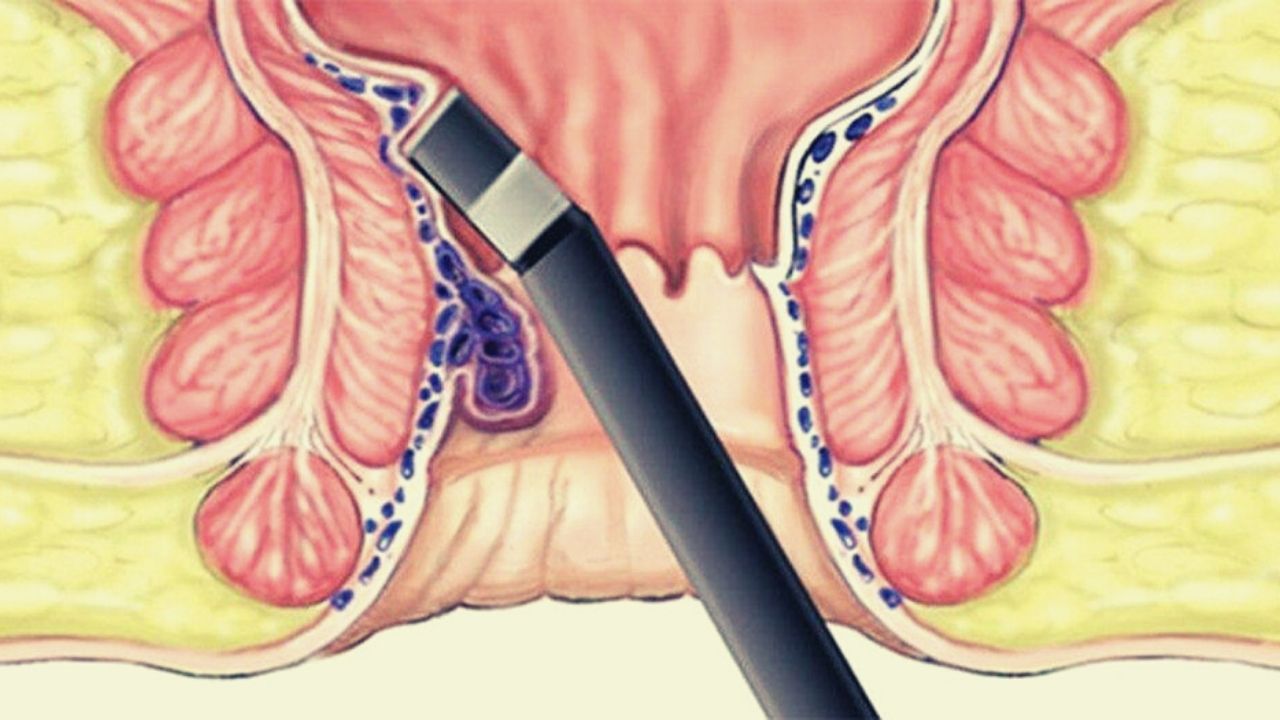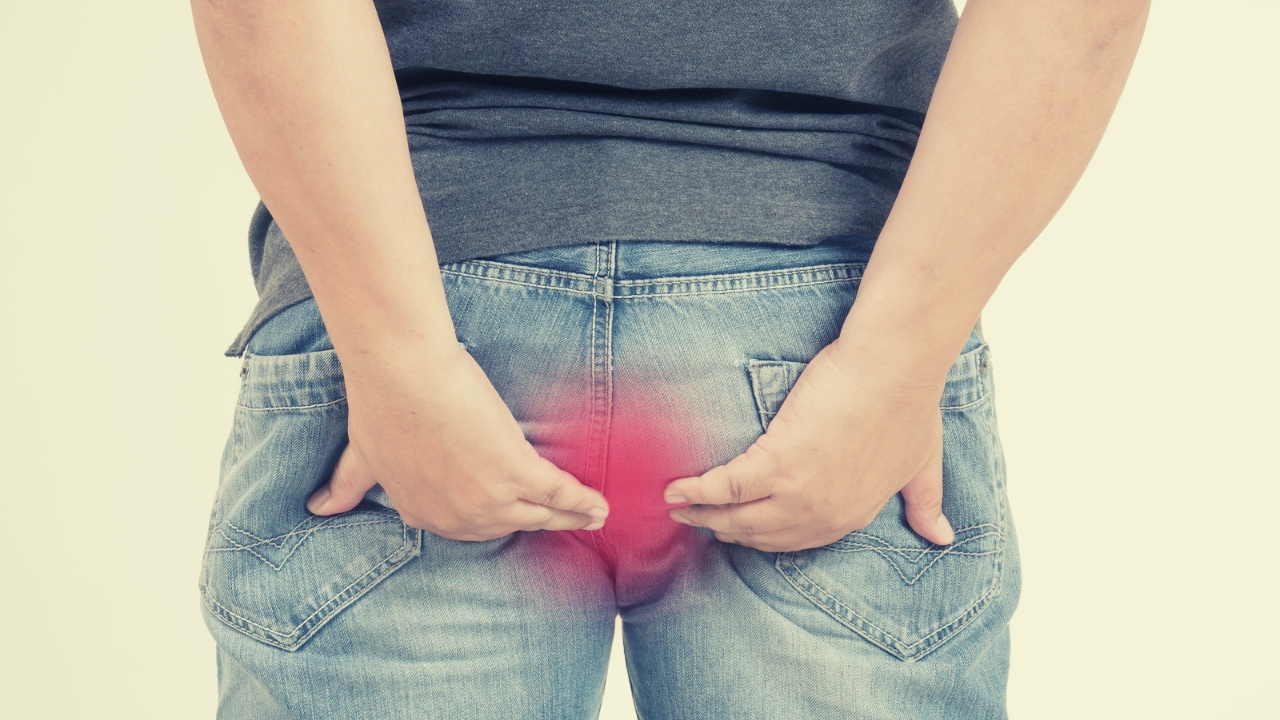Hemorrhoids treatment- hemorrhoids are abnormal expansion of the choroid plexus in the rectum, in which venous blood stagnates in them. It is better to treat hemorrhoids in the initial stages and prevent the development of complications. Stagnation of blood contributes to inflammation of the nodes and their increase in size, often so much that they fall out of the rectum.
This is the most common disease in proctology; both men and women are equally susceptible to it. There are a lot of factors that influence its development. At risk are people whose professional activities are associated with constant heavy lifting, as well as those who lead a sedentary lifestyle and have indigestion.
Causes of hemorrhoids
One of the main reasons for the appearance of stagnation in the vascular corners of the rectum is a sedentary lifestyle. Normally, all people have hemorrhoids, the task of which is to keep the contents of the intestines: as they fill with blood, they close tightly, thereby preventing the passage of feces through the anal canal. For a number of reasons, blood may begin to stagnate in the veins inside or outside the rectum, then the venous plexuses will begin to increase in size and bring pain and discomfort to a person.
Among the common factors of their growth:
- chronic constipation;
- prolonged diarrhea;
- increased intra-abdominal pressure;
- improper nutrition;
- frequent consumption of coffee, alcoholic beverages;
- pregnancy and childbirth;
- prolonged sitting or standing in one place (often associated with professional activities);
- cycling, weightlifting, horse riding;
- obesity.
In connection with mass computerization, many people spend most of the day sitting. A sedentary lifestyle today is the norm for young people, therefore, an increase in hemorrhoidal plexuses is increasingly found in young people, adolescents and even children.
As the body ages, the connective tissue in the pelvic area weakens, which also leads to the formation of bumps.
Women are statistically more susceptible to this disease than men. Hemorrhoids are a frequent companion of pregnancy and childbirth; they can also occur as a result of a genetic predisposition.
Symptoms of hemorrhoids
Discomfort in the anus is the first signal of pathology. This disease is characterized by an undulating course, with periods of exacerbation and remission, so the symptoms are not constantly expressed.
The main manifestations include:
- a burning sensation and itching in the anus;
- the release of blood, mucus during trips to the toilet or immediately after;
- bumps near the anus;
- painful sensations when walking, sitting, emptying the intestines.
Separate acute and chronic hemorrhoids. The first is characterized by a vivid manifestation of symptoms, in the second case, the symptoms are implicitly expressed.
Symptoms also differ depending on the type of disease:
- Internal hemorrhoids develop inside the anal canal. When straining during a trip to the toilet, the bumps can fall out, sometimes they can be put back, but with a more advanced course of the disease, it is impossible to do this on your own. Blood from the anus is the main symptom of this type of disease.
- External hemorrhoids are enlargements of the external hemorrhoidal veins. These are not fallen out bumps, although many mistakenly believe otherwise: the external veins are covered with skin, while the internal ones are covered with mucous membranes. Bleeding is usually absent, since the nodes are not injured during bowel movements. But stagnation of blood can provoke thrombosis of the hemorrhoid, which is a dangerous complication. The size of the outer cones is from a few millimeters to several centimeters, depending on the amount of blood.
Stages of hemorrhoids
The disease develops in 4 stages:
- first: during the act of defecation, slight bleeding is observed, discomfort is present, but the nodes do not fall out;
- second: at this stage, the nodes begin to fall out when straining, but they return to their original position on their own;
- third: itching appears, the nodes can no longer fall into place on their own, they have to be adjusted by hand;
- fourth: severe discomfort, pain, itching, bumps fall out constantly, seizing the intestinal mucosa, the functioning of the sphincter is disrupted.
It is important to deal with the treatment of the disease in time. Stages 1-2 are successfully treated with conservative methods – drug therapy, diet correction, daily activity, various procedures. 3-4 stage is an indication for surgery.
Hemorrhoids treatment at home
On the Internet, you can find many articles describing the treatment of hemorrhoids with folk remedies, but it is worth remembering that this is a dangerous disease. His treatment should take place strictly under the supervision of a specialist – a proctologist. Only he will be able to accurately establish the type, stage of the disease and prescribe competent treatment.
Many popular recipes are aimed at combating inflammation (for example, baths of decoctions of various herbal preparations), but you should not rely only on them. By dealing with the symptoms and ignoring the cause, you only mask the disease. Without treatment of the cause, it will only progress and it will not be possible to do without surgery.
We advise you not to experience advice from the network without first consulting a specialist. Remember: it is better to cure an ailment at the initial stage with the help of suppositories and ointments than to start and treat it already with the help of a surgical intervention.
Drug treatment for hemorrhoids
If you feel discomfort in the anus or have already groped for bumps – consult a proctologist as soon as possible. After examination and diagnosis, you will most likely be prescribed medication for hemorrhoids:
- at the first stage: suppositories and ointments for hemorrhoids, which can relieve pain, relieve inflammation, stop bleeding, normalize blood circulation in the affected veins;
- at the second stage: stronger drugs are used that can alleviate the patient’s condition and restore normal blood circulation in the hemorrhoids;
- the third and fourth stages are indications for surgery, pain relievers and anti-inflammatory ointments can be prescribed to relieve pain and inflammation during the period of preparation for surgery;
- additionally, enzymes and probiotics can be prescribed to normalize the functioning of the gastrointestinal tract.
For the prescribed therapy to be as effective as possible, you need to strictly adhere to the instructions of your doctor:
- try to ensure regular and soft stools, avoid constipation and diarrhea, for this you should adjust your diet;
- after each trip to the toilet “in a big way” you should wash yourself with soap;
- at night, it is necessary to do therapeutic sessile baths.

A good result is shown by a combination of drugs, procedures, minimally invasive methods. The latter include:
- sclerotherapy – the introduction of a special drug into the damaged veins, which glues their walls and stops functioning;
- photocoagulation – used, in particular, as a method of rapid relief of bleeding by sealing the damaged vein using a light flux;
- ligation – clamping of the damaged vessel with a latex ring, used mainly for the treatment of internal veins;
- transanal dearterization – suturing of individual sections of the hemorrhoidal artery, allows you to preserve the natural functioning of the anal canal.
Surgical treatment of external nodes is carried out if there is a threat of complications (bleeding, thrombosis, etc.) or in the case when the conservative technique has not shown significant results.
Prevention of hemorrhoids
As with other medical conditions, it is much easier to prevent hemorrhoids than to treat them.
Preventive measures include:
- changing lifestyle from sedentary to moderately active;
- revision of the diet in order to normalize the stool and prevent constipation;
- thorough hygiene of the anus.
If you have already discovered this disease in yourself, in order not to provoke its development for a while, give up:
- swimming;
- hiking;
- lifting weights;
- weightlifting;
- horse riding;
- cycling;
- spicy and spicy food;
Do not forget: the sooner you see a doctor, the sooner you will cope with this ailment. Do not self-medicate, it can be dangerous to your health!
